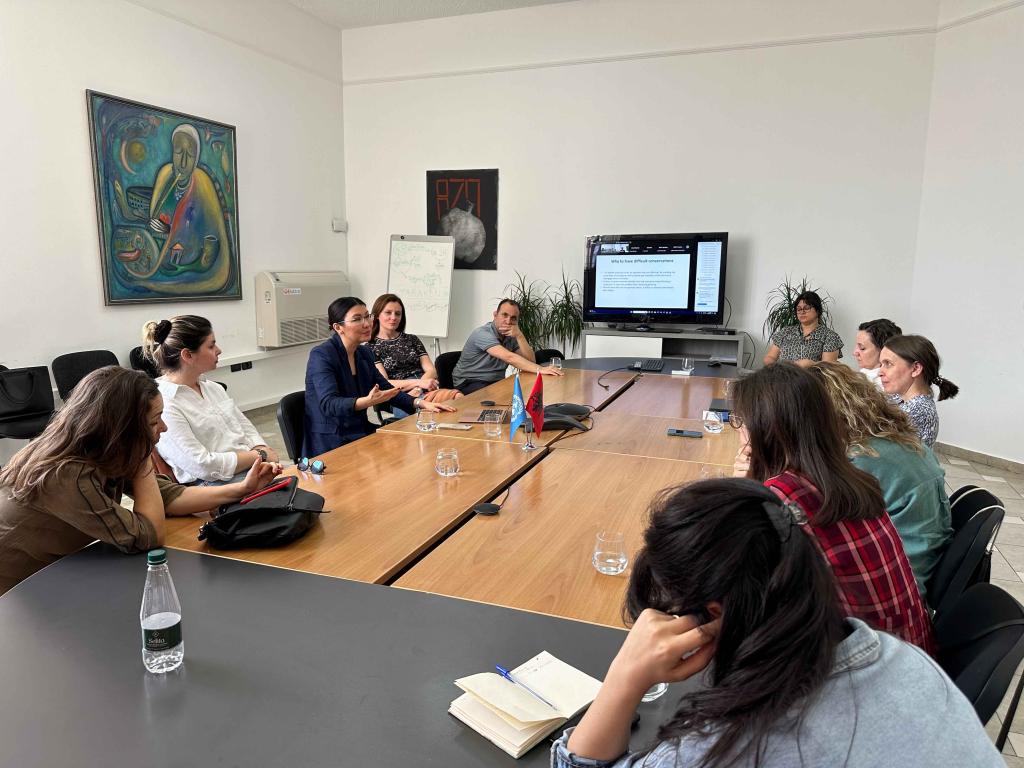World Mental Health Day is observed in October. In the lead up to and beyond, the day aims to raise awareness and reduce stigma of mental health worldwide. Okba Doghim and Gulnara Zhakupova reflect on their UN Volunteer assignments and how they make mental health care a priority in crises and emergencies.
Compassion, commitment, impact—these are not just words for Okba Doghim—they describe his motivation to volunteer.
With the ongoing conflict in Syria, Okba felt a responsibility towards the affected populations. Witnessing the devastating physical and mental effects of the conflict, especially on women and children, was a turning point in his life. “I decided to volunteer during the Syrian crisis, driven by a strong sense of duty to contribute to alleviating the suffering of vulnerable populations,” Okba expressed.
In 2024, Okba joined United Nations Population Fund (UNFPA) team in Türkiye as Sexual and Reproductive Health (SRH) and Gender-based Violence (GBV) Integration Specialist. In his role, Okba assessed the needs of newly opened facilities in Northwest Syria, conducted trainings to integrate SRH and GBV services into medical facilities and to enhance the skills of medical and non-medical staff to respond to the needs of GBV survivors.
One of the critical aspects of Okba’s work was related to the mental health and wellbeing of GBV survivors. GBV could lead to mental health conditions such as depression, anxiety and post-traumatic stress disorder (PTSD) and these effects could be multiplied in humanitarian context. “From my experience, GBV has a profound impact on mental health, with survivors often facing severe psychological trauma. Addressing mental health in the context of GBV requires integrated, survivor-centered approaches that provide both psychological support and protection services,” Okba explained.
However, providing these services could be challenging due to the complex cultural and social dynamics. “Resistance from local leaders and community members sometimes posed a significant barrier to the acceptance of these services,” he stated. To overcome this, Okba included local influencers in their projects to assist interactions with locals and provided culturally sensitive trainings. Using this approach, over time, Okba witnessed a shift in locals’ perceptions and gained their support in delivering the services successfully. As a result, their initiative provided a relief to people who were not able to access essential services before.
“The impact of my contribution is reflected in the improved access to essential SRH services for vulnerable populations and the strengthened capacity of local health providers to respond to GBV cases. Locally, this has translated into higher quality and more accessible healthcare services, contributing to better health outcomes for women and children in the region.” Okba Doghim, UN Volunteer with UNFPA.
Working in crisis settings could affect the mental health of humanitarian workers, causing the secondary trauma as well. Knowing the importance of psychological support during conflicts, former UN Volunteer Gulnara Zhakupova used her expertise to improve the wellbeing of United Nations Development Programme (UNDP) personnel as a Staff Counsellor. Gulnara’s experience on grief healing, anxiety, panic attacks and PTSD in conflict zones support and natural disasters equipped her for this role.
“In 2023, Türkiye faced a disastrous earthquake, and many UN colleagues and their families were affected. The UNDP well-being team proactively offered its immediate support, and group and individual sessions for personnel and their families were provided.” Gulnara Zhakupova, former UN Volunteer with UNDP Regional Bureau for Europe and the Commonwealth of Independent States (RBEC) who currently serves as UNDP staff counsellor for the region

Despite the stigma around it, mental health is directly linked to all aspects of life, including overall wellbeing, social relationships and educational and economic outcomes. “We, as an organization, need to set an example and normalize talking and addressing mental health issues,” Gulnara underlined.
Each year, the UNDP well-being team organizes events on topics such as burnout, stress management, living in a conflict zone and many others to mark Mental Health Day and raise awareness.
“Asking for support in challenging times should not be seen as an act of weakness. In fact, it is an act of strength to accept that one needs support and seeks for it. As an avid mental health advocate, I am happy that we in UN have Mental Health Day to acknowledge its importance and recognize those who contribute to our colleagues’ mental health support daily,” Gulnara concluded.
To access the UNDP well-being team's resources, please click UNDP Well-being.

